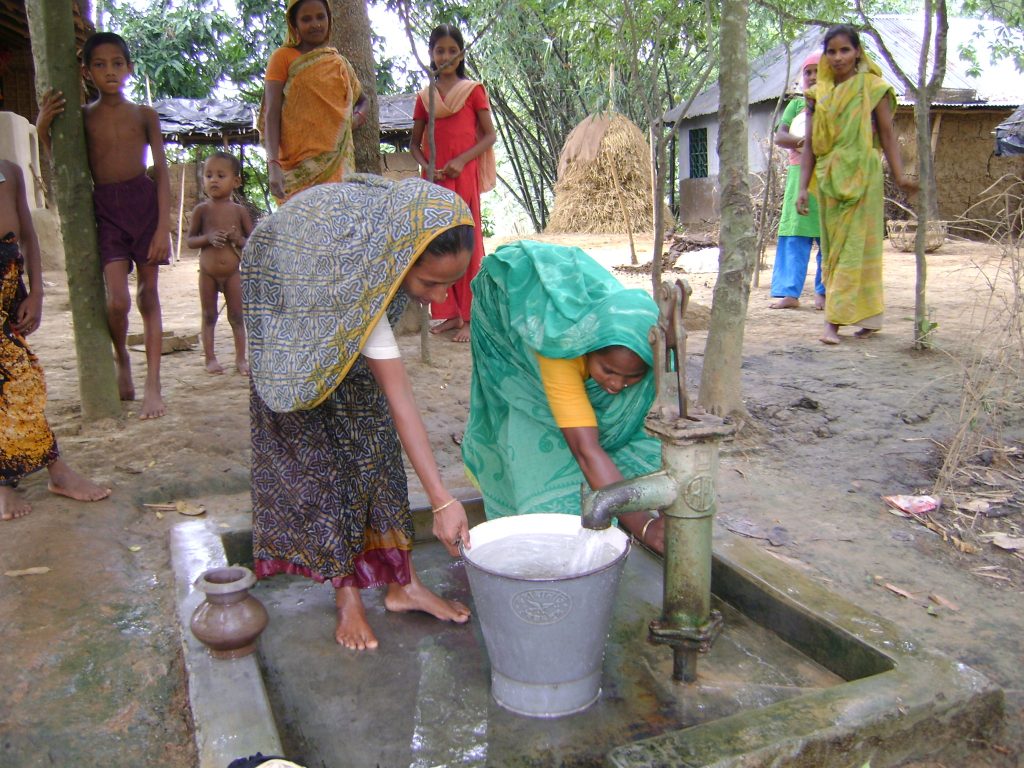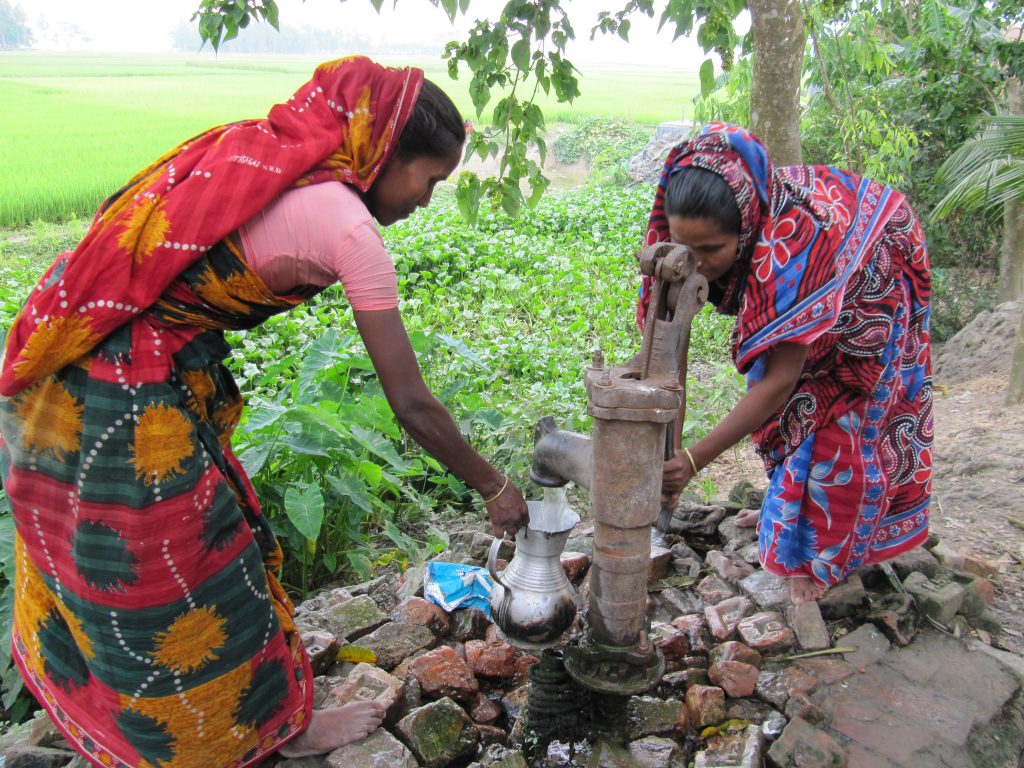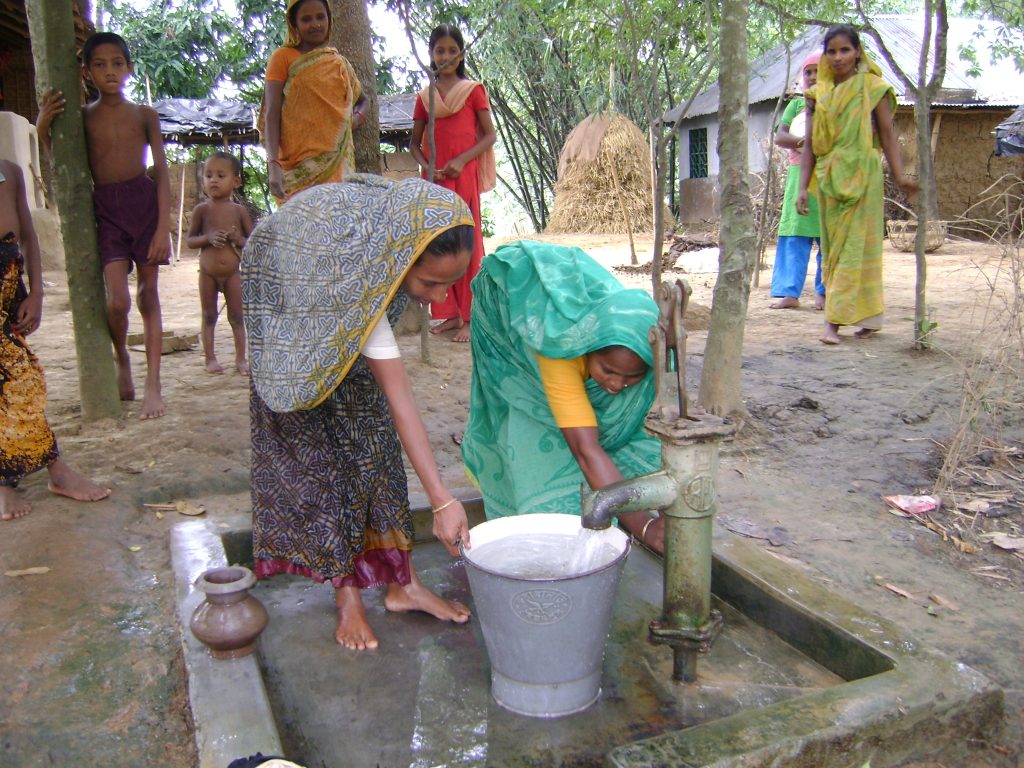Save Earth Society’s Project Transforms Lives by Installing Tube Wells and Sanitary Latrines Across Villages

In the remote and underserved corners of rural Bangladesh, safe drinking water is not a guarantee—it’s a luxury. Millions of families still rely on contaminated sources like open ponds, shallow wells, or rivers to meet their daily water needs. This silent crisis brings with it a wave of preventable diseases, chronic illnesses, and unrelenting poverty.
In response, Save Earth Society launched its Safe Water and Sanitation Project, aiming to ensure clean water access and hygienic sanitation facilities for the most vulnerable. Since its inception, this initiative has installed 2,124 tube wells and 418 arsenic-free deep wells, benefiting more than 25,000 families. Coupled with the distribution of 40,989 sanitary latrines, the project is not just saving lives—it’s restoring dignity.
The Contaminated Reality of Rural Life
In many villages across Cumilla, Chandpur, and other rural districts, drinking water often comes from uncovered ponds, shared community wells, or nearby streams. These sources, teeming with bacteria, parasites, and industrial pollutants, become breeding grounds for waterborne diseases like cholera, diarrhoea, typhoid, and dysentery.
For a daily wage earner earning less than $2 a day, treating these illnesses can mean falling deeper into debt—or losing a child to dehydration. The health burden also disrupts schooling and work, perpetuating the poverty cycle.
“Access to clean water is not only a health issue—it’s a matter of social justice,” says Md Mahamudul Hasan, Founder of Save Earth Society. “Every family should have the right to safe drinking water regardless of their economic condition.”
Strategic Planning for Real Impact
Unlike many other development programmes that overlook technical considerations, Save Earth Society’s project is rooted in best practices and scientific planning. Inspired by the pioneering sanitation model of PEP (People’s Empowerment Program), the project ensures that every tube well is installed at least 75 feet away from any latrine or waste disposal point. This simple precaution drastically reduces the chance of faecal contamination, a major cause of illness in poor households.
Field workers are trained to assess water tables, test for contaminants, and select well locations that maximise accessibility and safety. In areas affected by arsenic contamination, the team goes a step further—installing deep wells that reach depths of 700 to 800 feet, effectively bypassing the arsenic layer.
The Arsenic Crisis: An Invisible Enemy

Arsenic, a naturally occurring metalloid, has poisoned groundwater in several regions of Bangladesh. Prolonged consumption causes arsenicosis, a slow and painful condition that affects skin and internal organs and even leads to cancer. Unfortunately, most families in affected areas cannot afford the high cost of deep tube wells, which average $720.00 per unit.
To bridge this gap, Save Earth Society partners with donors and uses a cross-subsidy model—where urban supporters and CSR partners help fund these lifesaving installations in high-risk areas.
One such well now serves 80 families in a village in Muradnagar, where schoolchildren once had to walk 2 km just to fetch water.
Sanitation: The Other Half of the Equation
Water alone cannot secure public health. Poor sanitation continues to be a leading cause of disease transmission, especially where open defecation or unhygienic latrines are the norm. For many families, even a basic household latrine costing $25 remains out of reach.
That’s why Save Earth Society integrates low-cost sanitary latrines with every water project it implements. These latrines are built using durable materials, provide privacy, and include ventilation to improve usage. Each installation is paired with community awareness workshops on hygiene, handwashing, and waste disposal.
The outcomes speak volumes: in villages where both water and sanitation units were installed, reported cases of diarrhoea and skin infections dropped by over 60% within six months.
A Lifeline for Women and Girls
Lack of clean water disproportionately affects women and girls. They are typically responsible for collecting water and managing household hygiene. In areas without nearby wells, women walk long distances—sometimes in unsafe conditions—to fetch water, sacrificing school time or income-generating activities.
By bringing water sources closer to home, Save Earth Society not only improves health—it restores time, safety, and agency to women. School attendance among girls improves, and women can engage more fully in community life or entrepreneurship.
Program Costs and Scalability
Despite its large impact, the project remains cost-efficient:
- Ordinary tube well with platform: $160.00
- Arsenic-free deep well with platform: $720.00
- Household sanitary latrine: $25.00
With relatively modest investment, a donor can change the future of an entire family. Save Earth Society ensures transparency by providing receipts, installation photos, and location coordinates to all donors.
The organisation plans to install an additional 1,000 tube wells and 10,000 latrines by the end of 2026. Expansion is focused on climate-vulnerable and arsenic-affected areas in southern Bangladesh.
A Call to Action: Partner for Progress
Water is not a commodity—it is a basic human right. Save Earth Society invites individuals, donor agencies, local government bodies, and international NGOs to support this mission. Contributions can be made to sponsor:
- Wells for specific villages
- Hygiene education programs in schools
- Training for local women to maintain sanitation systems
Together, we can turn dirty water into a story of hope.
Healing Begins with a Drop
When a mother no longer worries about her child falling sick from pond water, or when a young girl doesn’t have to walk miles for a bucket of clean water, development becomes real. It begins with a drop. And with every well, every latrine, and every trained family, Save Earth Society is building not just infrastructure—but resilience, dignity, and a future free from the chains of preventable suffering.
📚 References
- WHO (2023). Waterborne Diseases in Rural South Asia.
- Bangladesh Bureau of Statistics (2022). Rural Sanitation and Water Safety Report.
- Save Earth Society (2025). Safe Water and Sanitation Project Documentation.
- PEP (2021). Sanitation Model for Rural Health – Field Best Practices Manual.
- UNICEF Bangladesh (2023). Water, Sanitation and Hygiene (WASH) in Rural Schools and Communities.

